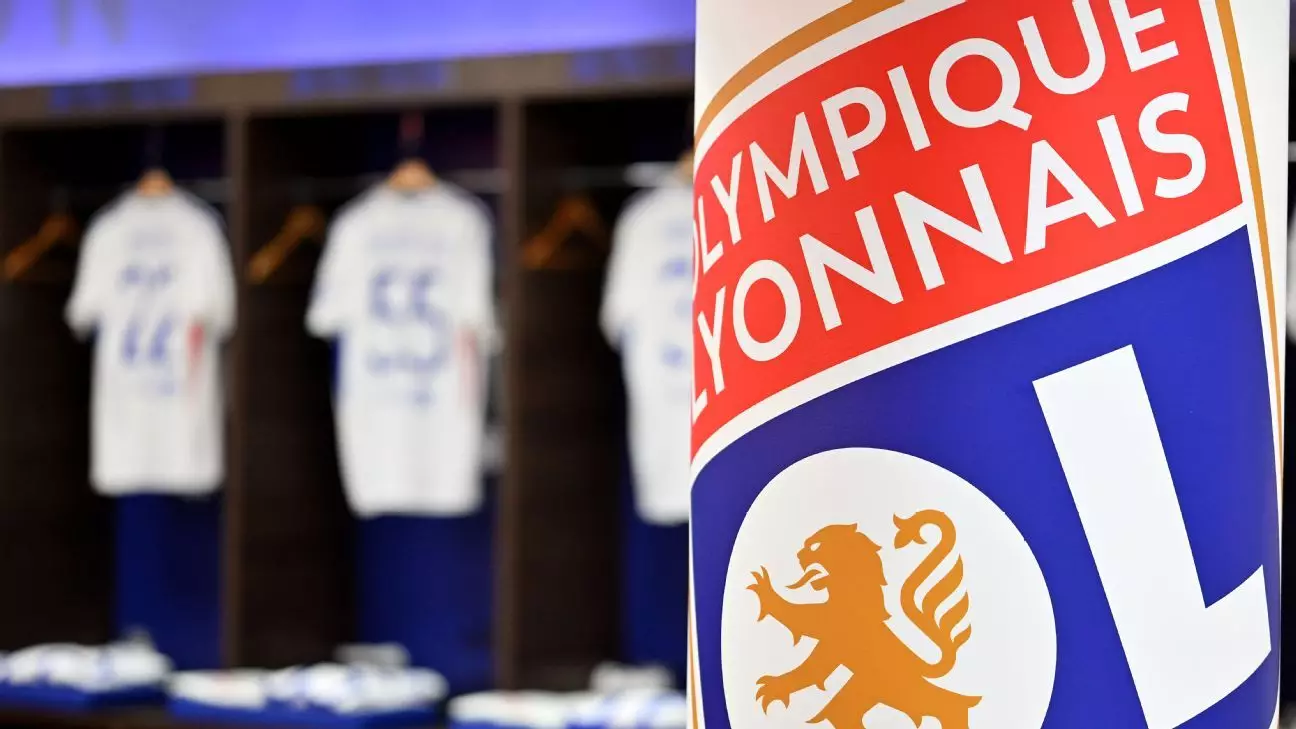Olympique Lyonnais, one of France’s most storied football clubs, finds itself ensnared in a dire financial quagmire, having been hit with a transfer ban for the upcoming January window and the looming threat of provisional relegation from Ligue 1. This drastic punishment, imposed by the National Directorate of Management Control (DNCG), highlights the important intersection between financial oversight and sporting integrity. These sanctions are not merely punitive; they serve as a wake-up call for the club, prompting an urgent reassessment of its financial practices.
Lyon’s ownership, under American businessman John Textor, has faced scrutiny following a hearing where the club was admonished for its financial mismanagement. According to the DNCG, the club’s financial health must be significantly improved if it hopes to stave off relegation at the season’s conclusion. The DNCG’s insistence on limiting player salary forecasts underscores the increasing pressure on clubs to balance the books in a sport that often seems dictated by lavish expenditures.
Once a powerhouse in French football, winning seven consecutive league titles from 2002 to 2008 and reaching the latter stages of the UEFA Champions League, Lyon’s recent history has been marred by instability and financial distress. The numbers speak volumes—reported debts of €505.1 million are alarming for any club, especially one with aspirations of returning to its former glory. The juxtaposition of past triumphs against the backdrop of current troubles illustrates the precarious nature of financial management in modern football.
Recent performances have not exactly painted a picture of crisis, with Lyon currently sitting fifth in Ligue 1, having secured a vital win in the derby against their fierce rivals, Saint-Étienne. However, such fleeting moments of success cannot overshadow the systemic issues at the heart of the club’s operations. It raises questions about how sustainable decisions are made and whether short-term gains might exacerbate long-term suffering.
The sanctions placed on Lyon serve to illustrate a broader issue afflicting football clubs both in France and globally. As the DNCG steps up its regulatory oversight, clubs must grapple with the realities of financial sustainability amidst an ever-competitive landscape. The ramifications of financial mismanagement can be severe, resulting not only in demotion to lower divisions but also in diminished reputations and estranged fanbases.
Textor’s optimistic remarks post-hearing, claiming financial viability, appear somewhat disconnected from the harsh realities laid out by the DNCG. While he plans to present documentation aimed at reassuring stakeholders of the club’s operational stability, skepticism remains widespread.
In light of these developments, it becomes increasingly apparent that Olympique Lyonnais must embark on a strategic overhaul prioritizing fiscal responsibility and transparency. The road to redemption requires not only adherence to financial regulations but also a commitment to reshaping the club’s financial culture. Stakeholders, including fans, management, and the broader football community, must advocate for more responsible fiscal practices to ensure that the cautionary tale of Lyon serves as a lesson rather than a blueprint for future mismanagement. To rescue its legacy and pave the way for a prosperous future, Lyon must reclaim its position—not just on the pitch, but also in the financial arena.

